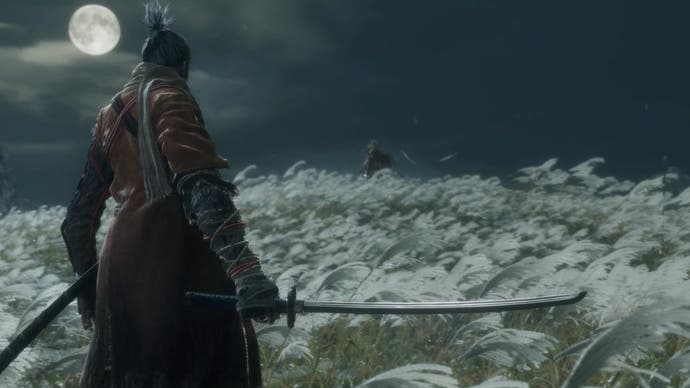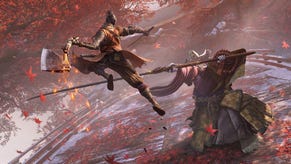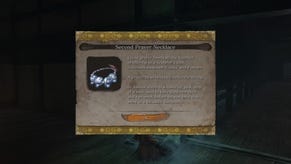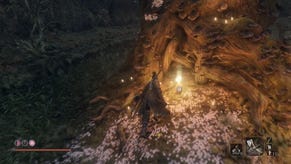Games of the Year 2019: Sekiro is seamless flow between swordplay and environment
Cutting.
Over the festive break we'll be running through our top 20 picks of the year's best games, leading up to the reveal of Eurogamer's game of the year on New Year's Eve. You can find all the pieces published to date here - and thanks for joining us throughout the year!
In a strange turn of events, if it hadn't been for Star Wars Jedi: Fallen Order, I probably would have missed Sekiro. Unsatisfied by the former's meandering levels, several of my friends pointed me towards Sekiro, but it was a game I'd been reluctant to try - having watched our own Chris Tapsell crumble into dust as he wrote guides for it.
I'm so glad I listened. Sekiro's world is compact, but crafted with minute attention to detail. Enemy placement is deliberate and calculated - asking players to plan their approaches using stealth and surgical combat to thin out a crowd. In the space of one encounter you'll need to prioritise an enemy with a gong, learn lines of sight to avoid being spotted committing said murder, or just bypass it all completely by discovering a tucked-away shortcut in the winding landscapes.
At the combat level, Sekiro reconciles the need for reactive game mechanics with the weightiness required for convincing swordplay. A swing, once initiated, cannot be easily undone (as I discovered many times to my literal peril) - but there's also room for quick parries, sidesteps and leaps to give battles movement and speed. Everyone talks of the joy of a well-timed parry, but it's also immensely satisfying to out-maneuver an attack and smack an enemy on the back, before whirling out of range once more.
Yet it's impossible to truly separate Sekiro's action from its environments, as one flows into the other. Decorative pillars become life-saving shields from flurries of kunai. Rooftops provide respite and opportunities for stealth kills - a simple wall allows you to spin a flaming bull and capitalise on a momentary vulnerability. The same grapple that grants incredible traversal between buildings allows you to sail over the heads of massive enemies. And even when ricocheting between difficult bosses, I've never felt truly stuck in Sekiro, as there's just so much freedom to glide through levels.
As I played more, I discovered the challenge in Sekiro is not reaction times, but overcoming a series of mental barriers: impatience, fear, lack of focus. The revelation that even a hulking general on horseback can be parried was one of these breakthroughs - along with the knowledge that once an enemy's patterns are memorised, it's merely a matter of time and patience. Often it's simply about abandoning the traditional idea of a boss fight as an upfront head-to-head battle, to the point where it sometimes feels like cheating (particularly when I dealt with one miniboss by repeatedly stealth-killing his minions and hiding behind a hut). But careful preparation, stealth and manipulating the environment is exactly what FromSoftware wants you to do in Sekiro. It's just a matter of realising it.










